
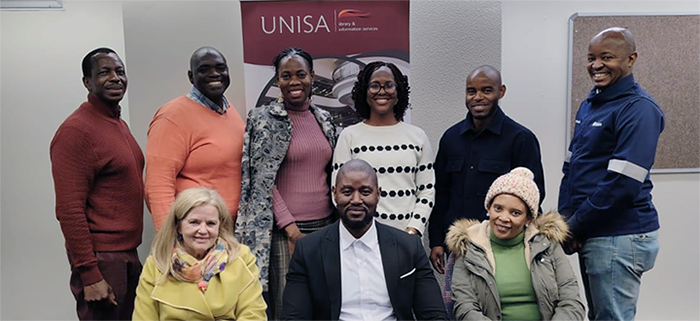
Back, from left: Dr Daniel Mosako, Prof Maoka Dikotla, Itumeleng Mpete, Dr Modiehi Rammutloa, Alex Legodi and Pule Mokhathi. Front, from left: Dr Filistéa Naudé, Mxolisi Ntanzi and Seipati Lehoko
In a significant step towards bridging the gap between technical expertise and academic research, the University of South Africa (Unisa) and Eskom are exploring a collaborative knowledge-sharing initiative. These initial stages of this magnificent proposal were set out on 9 July 2025 at the Unisa Library and Information Services (LIS) on the university’s Muckleneuk Campus.
The groundbreaking engagement brought together a dynamic mix of engineers, librarians, lecturers and information scientists, as well as an artist, who were united by a common goal of preserving and transferring critical knowledge from South Africa’s energy sector while promoting information literacy on energy consumption to communities throughout the country.
The meeting was held under the theme of collaboration and knowledge preservation. The attendees included representatives of Eskom’s Tutuka Power Station in Mpumalanga, as well as Unisa academics and library staff.
Dr Daniel Mosako, Acting Chair of the Department of Art and Music, underscored the urgency of documenting and managing institutional knowledge, particularly within Eskom. "We have seen experienced staff retire, taking vital knowledge with them," he said. "Knowledge must be harvested before it migrates. Otherwise, we risk facing a tacit knowledge blackout."
Echoing this sentiment, Pule Mokhathi, a documentation specialist from Eskom, pointed out that many power stations need structured knowledge management strategies. "We therefore need to develop systems that allow seamless knowledge transfer from experienced workers to the next generation," he said.
The concept of knowledge management (KM) emerged as a central focus, and Unisa offered its academic and technological expertise to help Eskom build practical systems to retain and use institutional knowledge effectively.
The collaboration also aims to improve energy literacy by educating South Africans about responsible energy use, electricity safety, and the working of the Eskom grid system.
"In many communities, there is limited understanding of why load-shedding occurs in some areas and not others," explained Prof Maoka Dikotla of the Department of Information Science. "If people have the right knowledge, they can better manage their energy consumption and participate meaningfully in the national energy conversation."
This partnership reflects Unisa’s strategic commitment to engaged scholarship, an approach that combines academic output with community upliftment. Dr Modiehi Rammutloa from the Department of Information Science emphasised that this initiative is not just a knowledge-sharing transaction but a transformative collaboration.
"We want to produce research that is useful to society," she said. "And we want to document this journey so that future scholars and practitioners can learn from it."
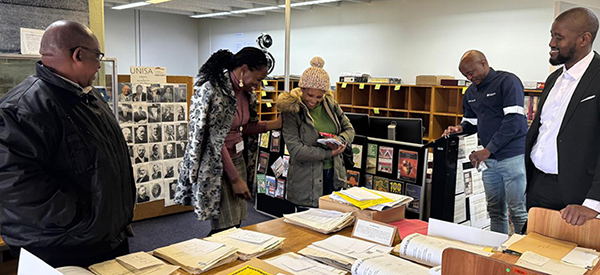
Eskom delegates taking a guided tour
Several attendees committed to co-authoring academic papers based on the project for publication in peer-reviewed journals. "Every engagement should result in both community benefit and academic contribution," said Dr Filistéa Naudé, Personal Librarian from the College of Science, Engineering and Technology, Unisa LIS.
A particularly powerful moment occurred when Seipati Lehoko, Eskom Production Manager, highlighted the need for leadership development programmes for women in technical fields.
"As women in the energy sector, we often face double burdens," she said. "We need targeted programs that support our progression into supervisory and managerial roles."
The Unisa team welcomed the suggestion and committed to exploring gender-responsive learning and mentoring programs as part of the partnership.
The initiative will begin with a pilot project at the Tutuka Power Station, with plans to expand to other Eskom sites based on its results. Unisa LIS has already started a resource gap analysis to ensure that both staff and community members have access to relevant energy and knowledge management materials.
As the event drew to a close, a shared vision emerged: not just to store knowledge, but to shape the future of energy education in South Africa. "Information is more powerful than gold," Dikotla remarked. "Together, we are not only generating electricity – we are generating legacy."
"As Eskom colleagues toured the Unisa Library, they saw not only archives and books, but a commitment to future-facing information stewardship," said Itumeleng Mpete, reflecting on the tour that concluded the event.
* By Itumeleng Mpete, Marketing Coordinator, Library and Information Services
Publish date: 2025-07-21 00:00:00.0
 Unisa empowers award-winning agro-cosmetics entrepreneur
Unisa empowers award-winning agro-cosmetics entrepreneur
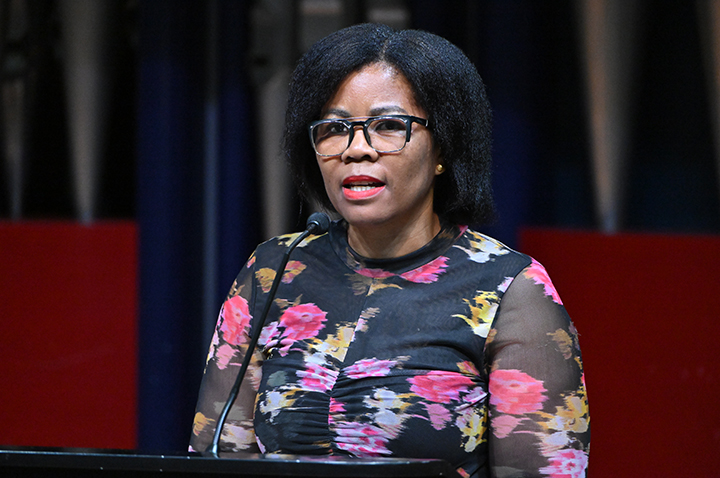 Unisa initiative offers early-career academics "a stepping stone towards greatness"
Unisa initiative offers early-career academics "a stepping stone towards greatness"
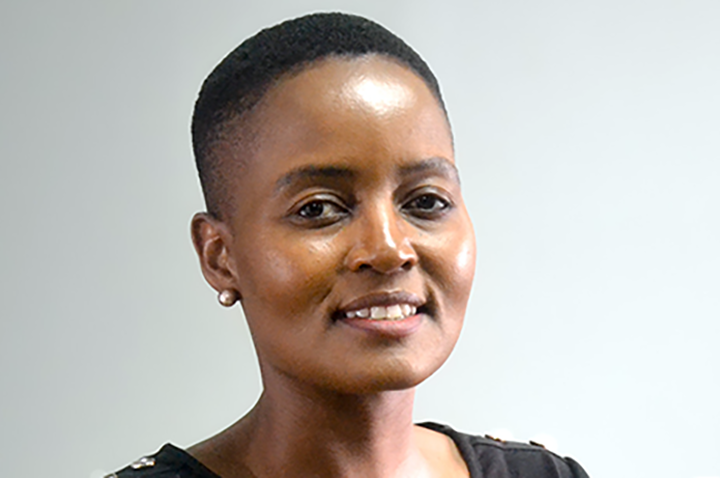 Seasoned meteorologist joins Unisa
Seasoned meteorologist joins Unisa
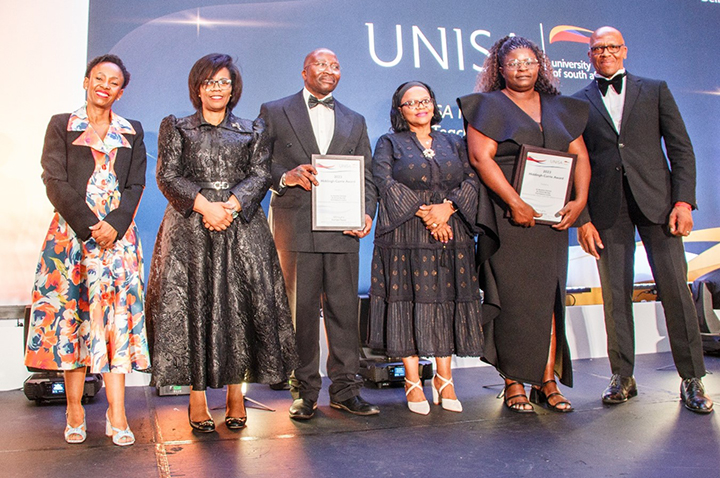 Unisa celebrates the 2023 and 2024 Hiddingh-Currie Award winners
Unisa celebrates the 2023 and 2024 Hiddingh-Currie Award winners
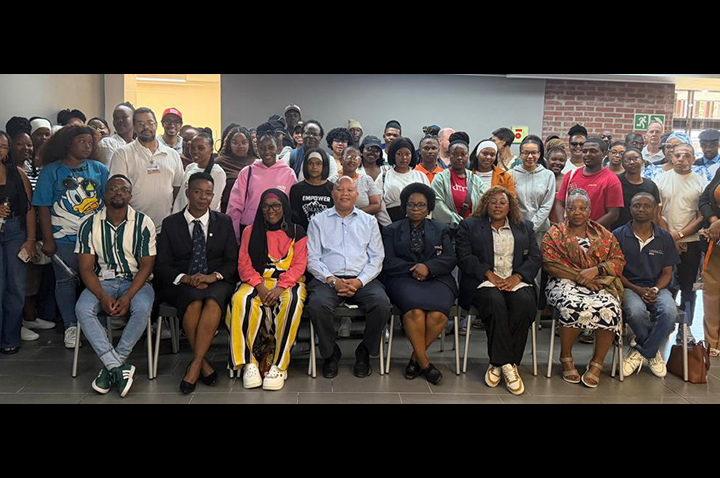 Unisa celebrates a project of hope, dignity and student success
Unisa celebrates a project of hope, dignity and student success